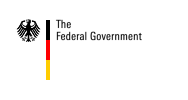Cologne 1999
The Cologne Charter names basic education as an essential element for the positive development of children. The exchange of both teachers and administrators as well as students is a further concern of the G8. They task a group of experts with finding opportunities for strengthening such exchanges.
Okinawa 2000
In recognition of the Education for All (EFA) initiative, the G8 undertake to strengthen their efforts with international organisations. By 2015 every individual worldwide is to have access to basic education.
Genoa 2001
The G8 established a task force on education. This was in response to the goals adopted at Dakar for the "Education for All" (EFA) Initiative. Particular important among these was universal primary education.
Kananaskis 2002
The task force presents its first report, which states that more than 100 million children worldwide do not go to school, 60 percent of them girls.
Almost a billion adults are illiterate. Almost all these people live in developing countries.
The G8 undertake to substantially increase their financial support, enabling the educational aspects of the HIPC initiative to be supplemented.
St. Petersburg 2006
Lifelong learning as a further concern for the global society plays a central role for the G8.
It therefore welcomes Italy’s offer to organise a world forum for "Education, Innovation and Research: New Partnership for Sustainable Development” together with UNESCO.
German contribution
37 percent of Official Development Assistance (ODA) goes into educational work. In 2005 Germany provided a total of around 9.915 billion US dollars to ODA, which comes to around 0.35 percent of the gross national product.
Spending on projects for formal basic education: by 2007 the annual funding will be increased to 120 million euros in total.

